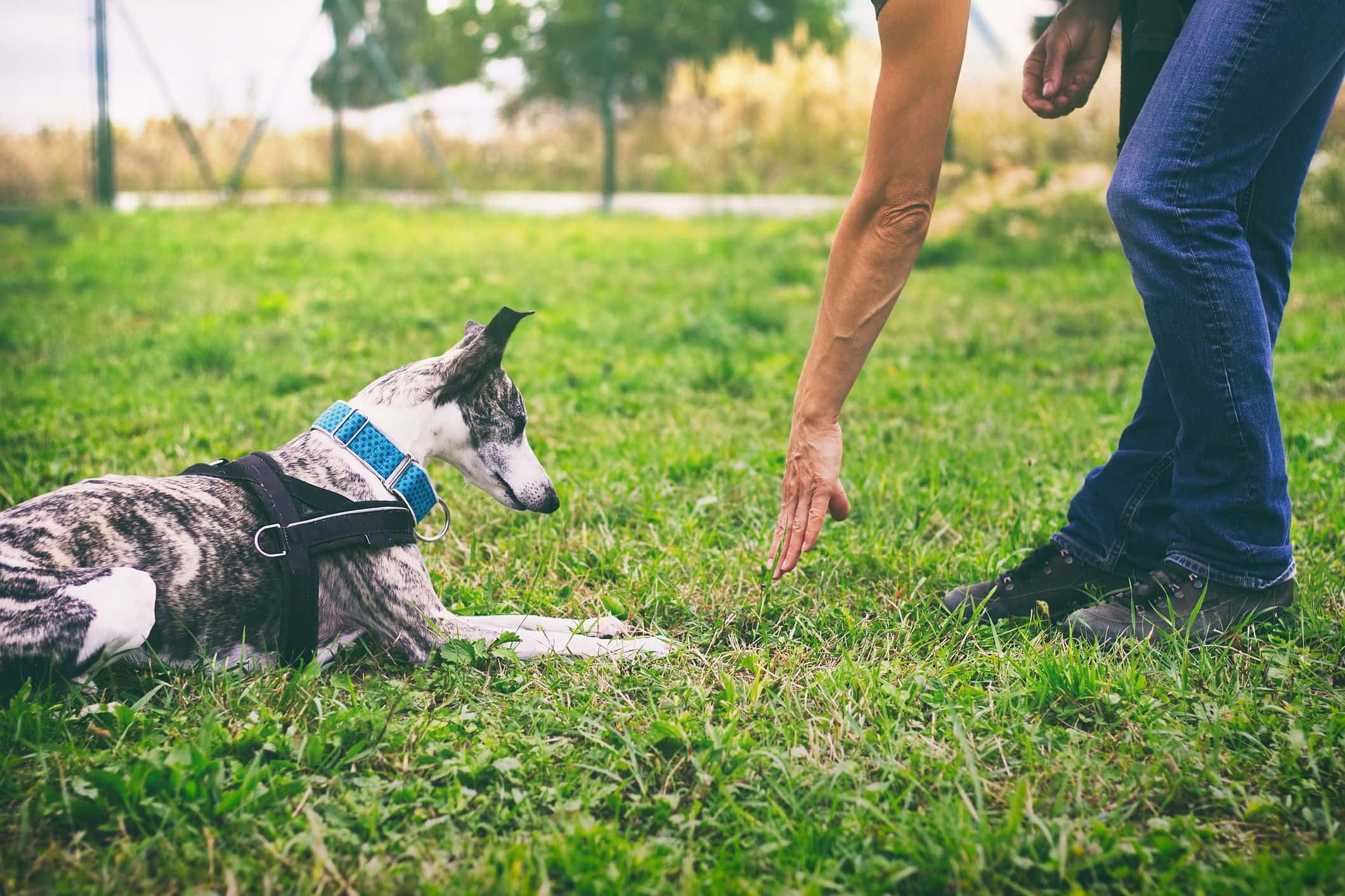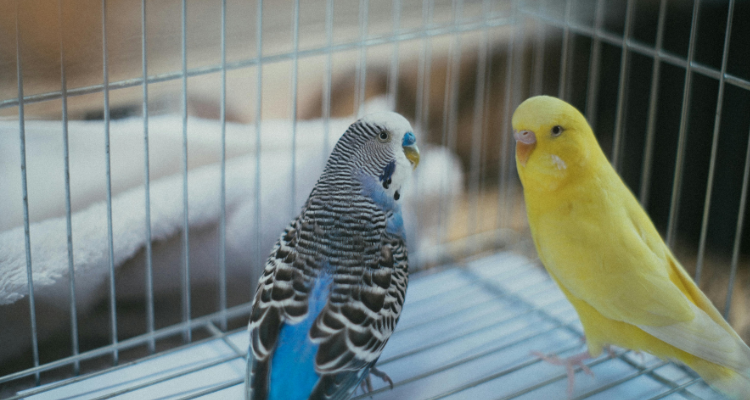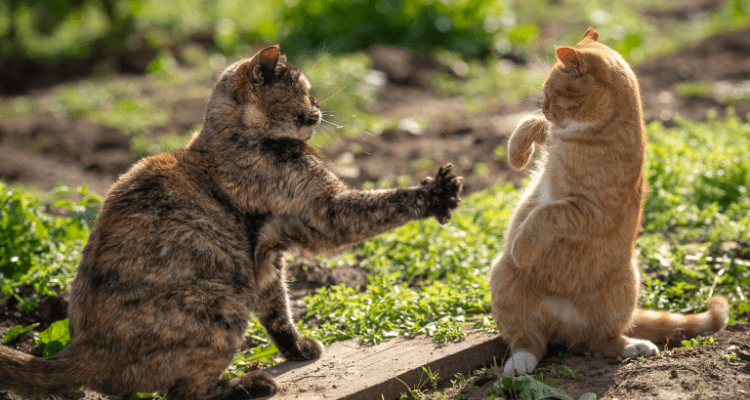Teaching your dog to lie down is one of several essential commands your dog should know. Of course, your pet should also come when called and know how to sit as well. But how exactly do you teach your pet commands like these?
Canines are intelligent animals and can learn tricks quickly. Of course, treats make it easier, especially if you reserve them as training aids. Your dog can recognize your emotions, which can help your efforts. They will pick up on your enthusiasm and praise, so use those factors to your advantage. Many pups are eager to please, which can give them added motivation to stick with their lessons. So, if you want to teach your dog how to lie down, keep reading for a step-by-step guide.
Before You Start
Admittedly, lying down is an advanced command that requires patience and frequent repetition. Don’t despair if it takes your pet several attempts before the penny drops. Remember that the lessons don’t stop once your dog successfully lies down when asked; you should repeat it occasionally to reinforce the command.
You should keep treats on hand during training sessions. One method of teaching this trick is rewarding your dog when they do it on their own. That helps create a positive association between the act and the treat. We recommend using a clicker as another audible cue for your pet to respond as you want them to do. Everyone in the house should also be on board with the procedure and the command word to avoid confusing your pet.
You should conduct the lesson in a quiet room alone with your pet. You may find your pup more attentive if you work with your dog when they are calm or getting ready for naptime. After all, an excited pooch will be too distracted to make any connections with what you’re doing.
Now that you’re a bit more mentally prepared and have some treats in hand, let’s go over the steps to teaching your dog to lie down.

How to Teach a Dog to Lie Down in 7 Easy Steps
1. Begin by Encouraging Your Dog to Sit
Getting your dog to sit has you halfway toward completion of the trick. If they already know this command, even better! However, make sure you reward your dog for completing the command before proceeding to the next step. The challenge of this method is keeping the actions separate in your pet’s mind. The goal is to keep sitting and lying down as distinct actions that are both rewarded when completed.

2. Hold Out a Treat in Front of Your Dog
Holding out a treat in front of your dog creates the anticipation necessary for action. Let your dog know it’s there, but hold on tightly to it if your pooch tries to snatch it away from you. After all, the treat has a price, and they need to work to get it.
3. Lure Your Pup to a Down Position With the Treat
Trainers call this method “luring.” The object is to keep your dog focused on the treat, move it down to the floor, and encourage them to slide their body forward to get it. When your pet lies down, say the command, click your clicker if you’re using one, and reward them. Make sure to praise your pet for a job well done. We also find pets will stay in this position longer if you put the treat between their paws, as it may help forge the association.

4. Repeat the Process With the Command, Clicker, and Treat
Repetition is necessary to make the association. You should gradually start the process lower to the floor to help your dog understand what you’re asking. Mark your pet’s response with the command and a click.
5. Pay Attention to Your Dog’s Response
We recommend paying attention to your pet’s response. If they don’t seem like they’re getting it, take a break and try again later. The hurdle you must face is teaching your dog the difference between sitting and lying down. They will likely touch their belly to the floor and jump up or go back into the sitting position. Your job is to show them that this command is different.

6. Alternatively, Start in a Standing Position
You can avoid this sitting dilemma by beginning the lesson with your dog standing. Some pets may find it easier to separate the two actions if you eliminate the middle step. The process is the same, using the command, clicker, and reward. Make sure your pup’s hocks and elbows are down before giving them the treat.
7. Reward Lying Down
An easy way to reinforce this command is to capture your dog in the act, and creating the association between stimulus and positive response means repeated lessons. If you see your pup in this position, you can use the command, clicker, and reward to bolster the association.


What You Shouldn’t Do
Positive reinforcement is the best way to train your dog, and many breeds are sensitive to harsh words. We see it often in canines with strong bonds with their owners. Therefore, we must re-emphasize patience and praise when your pooch does the right thing. We don’t recommend forcing your pup into the position; it’ll likely backfire.
Your dog won’t like it and will probably balk. It may even create a negative association with the act, hampering your efforts. You shouldn’t use a leash, either. The best way is to make it a natural response to your training methods. It’s worth noting that this command usually isn’t a one-and-done response. You must repeat it over and over again until they finally make the association and learn what exactly it is that you expect from them.

Final Thoughts
Teaching your dog to lie down takes their training to the next level. However, it offers techniques you can use to add to the commands your pup can do. The trick is creating positive associations with cues that your pet can easily detect. That makes a clicker so valuable. Marking the action is an effective way to cement the command and the action. Plus, treats are just a really tasty bonus!
Featured Image Credit: Zbynek Pospisil



